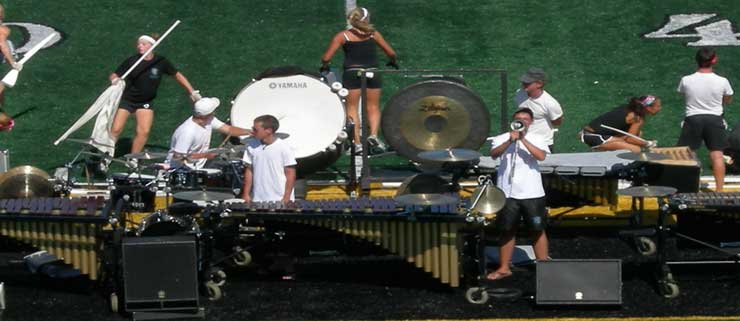It is always exciting to write this monthly column. Andy and I typically throw a few ideas back and forth before we decide which aspect of the vast area of music education and brain development the column should focus on. The results of the scientific study we are focusing on this month1 suggest that formal instrumental music education and regularly playing a musical instrument benefit brain plasticity and function throughout life. Let’s review this recent study and give you a little more to arm yourselves with when you defend and expand rigorous music education in our children’s schools.
In our last column, we reported on the short-term benefits of a 4-week non-instrumental music instruction program on verbal intelligence and brain plasticity in a group of young children.2 We postulated that the observed benefits were probably transitory; it would require years of music training to achieve a long-term impact on verbal intelligence and brain plasticity. These last 2 points make the results of this month’s scientific study all the more interesting:

Here is a summary of the study design:

What were the results? Of the 15 cognitive tests, 4 were statistically highest (better) in Group 3 (High activity musicians). The table below gives you the names and a little more information on the tests where the high activity musicians performed better. You may come across these tests in other studies in music education so it is worth knowing what they are measuring. Besides, it might give you an opportunity to impress someone at your next party.

What do the more favorable test results in the high activity musicians mean or suggest? Are the changes the result of the “Continuous co-stimulation of multiple brain regions†that music education and instrument playing require as mentioned in our first column? The results suggest that there is something critical occurring in the brains of high activity musicians. Perhaps it is a combination of the additional brain plasticity associated with formal music education and the maintenance of this plasticity by regular instrument playing. The authors cautiously point out that some of the cognitive areas where high activity musicians fared better coincide with brain functions that decline with advancing age, particularly in diseases like Alzheimer. We might summarize what happened in this study by adapting the figure from our first column:

Readers should recognize that it is good research practice to point out potential limitations in any study. One limitation of the study was high variability, which, while expected, greatly raised the bar for finding statistical differences between the high activity musicians and other groups. We do not know if this is why differences were not observed for the other 11 cognitive tests or between the high and low activity musician groups. Because this study measured effects from distant activities (e.g. formal music education that took place 35 plus years ago), the authors raised the possibility that there may have been other activities (outside of music education or regularly playing an instrument) that the high activity musicians participated in that may have accounted for the cognitive differences. By no means does this discussion on limitations take away from the positive results. It is just good research practice.
As always, we’d like to hear your thoughts and ideas for future columns. Please feel free to post them at the bottom of this column. We will carefully review all of them.
Wishing you a happy, healthy and music-filled Thanksgiving Holiday. See you again next month.
1 Hanna-Pladdy B and MacKay A. The Relation Between Instrumental Musical Activity and Cognitive Aging. Neuropsychology. 2011; 25(3):378-386.
2 Moreno S, Bialystok E, Barac R, Glenn Schellenberg E, Cepeda NJ and Chau T. Short-Term Music Training Enhances Verbal Intelligence and Executive Function. Psychological Science. Published online 3 October 2011. DOI: 10.1177/0956797611416999
This article is the second in a series written by Christopher Veirek, PhD, and being presented by the Music Empowers Foundation, a non-profit organization that provides financial support to other nonprofits that offer innovative music education programs to communities with limited or nonexistent programs. You can get more information when you visit the Music Empowers Foundation web site







 Scroll down to view the comparison chart of over a dozen different portable digital audio recorders.
Scroll down to view the comparison chart of over a dozen different portable digital audio recorders.